Celebrating Vermont Farm to School & Early Childhood Awareness Day
Posted on March 3, 2020
We heard it again this year: Farm to School and Early Childhood Awareness Day is one of Vermont legislators' favorite days at the State House. On February 12, students, teachers, administrators, farmers, school nutrition staff and advocates came to the Capitol to share their stories of the benefits of farm to school.
The Vermont Farm to School Network has been seeking $500,000 in state funding to expand farm to school programs to all school and early childhood communities. Even a small increase in the Vermont Farm to School & Early Childhood Grants Program helps reach more schools and providers. Additionally, a new bill introduced by Senators Pearson and Hardy (S273) would provide schools with a per plate incentive for purchasing more local foods from Vermont farmers and producers, making healthy, local food more accessible to more Vermont students. And a universal school meals bill, introduced in both the House and the Senate requires all public schools in Vermont to participate in a federal option to make available school breakfast and lunch to all students at no charge to their families.
These three legislative initiatives will work together to ensure Vermont children have the nutrition they need to succeed, while benefiting our farmers and rural economies. Read on for a few highlights from the testimonies:
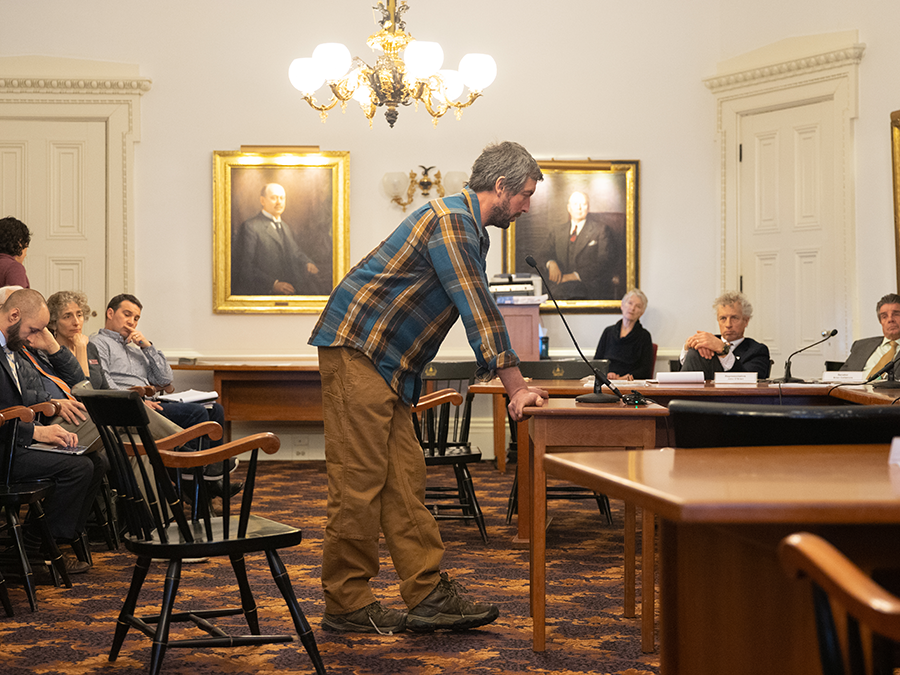
Angus Balwin, Owner / Farmer, West Farm
I do taste tests at my son's school, and he gets very excited. And I'm starting to get more excited, too. But, you know, he gets it. He wants to take food, which is a gift from the land, and give that food to his friends and his teachers. He knows this intuitively. We talk about nutrition, we talk about economics, we can talk about all sorts of things, but at core of it, I think it’s this relational aspect of food that is missing.
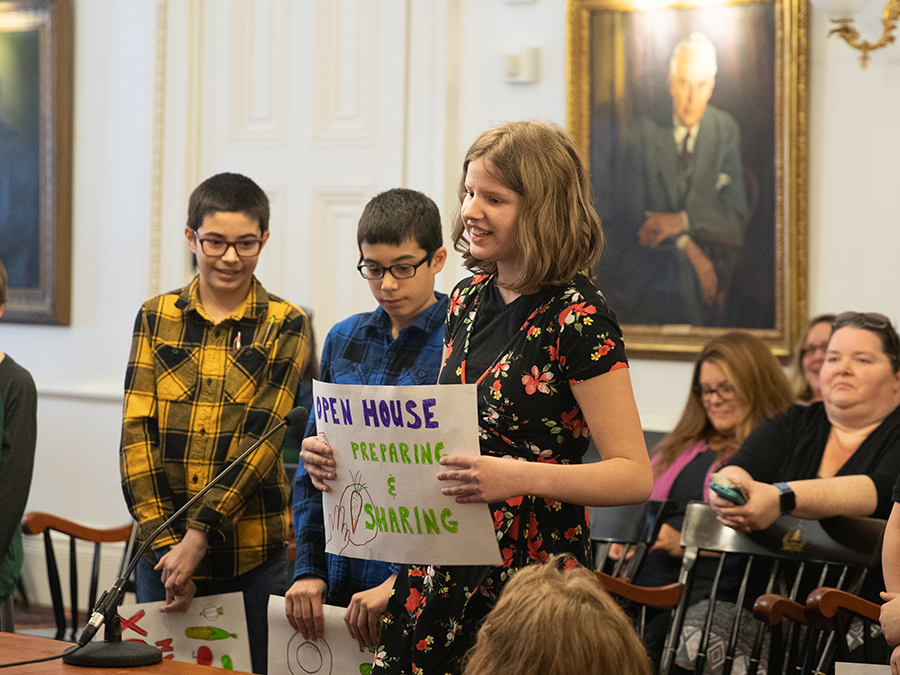
Berlin Elementary School Students
I'm Sophia, and I’m in sixth grade. Every day a different fresh fruit or vegetable is delivered to each classroom. Everyone gets to try foods they may not necessarily have ever eaten—like kale chips and roasted asparagus. We've all heard kids say “GROSS!” when they see new foods, but many times when they try it, they like it. I was surprised to like parsnips!
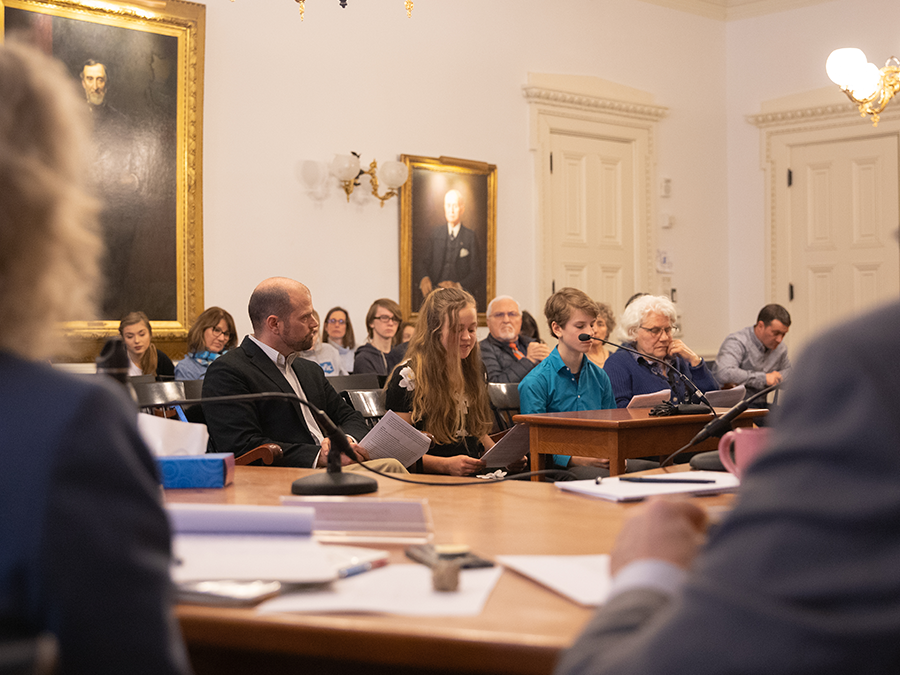
Peter Stratman, Cabot School Teacher
Cabot Farm to School is helping us develop a positive school culture. Students participate in community events and garden workdays where they take an active role in building community. This fosters a sense of belonging for students while offering unique opportunities for personalized learning.
Eileen Riley, Cabot School Teacher
We have a number of relationships with local farms whose children and grandchildren attend Cabot School, and we are building more connections with greenhouse growers and other producers as part of our Farm to School program. Our farmers are keenly interested in passing on their knowledge to the next generation, and they enthusiastically give their time every week to share their love of farming. As Jen Churchill of Wonder Why Farm has said to me on more than one occasion, “Kids need to know where their food comes from, and how it is being produced in their own community.”
Brock Miller, Cabot School Chef and Food Service Director (written testimony)
Farm to School technical assistance has helped us build a stronger, wider network with the many small producers in our region, and this brings significant benefits to the local agricultural economy. Although we are a small school, we are surrounded by relatively small producers. Cabot School is potentially the largest customer for some of them and a major source of income for others.
You can find out more about Cabot's farm to school efforts and how Vermont FEED supports them in our recent blog post.
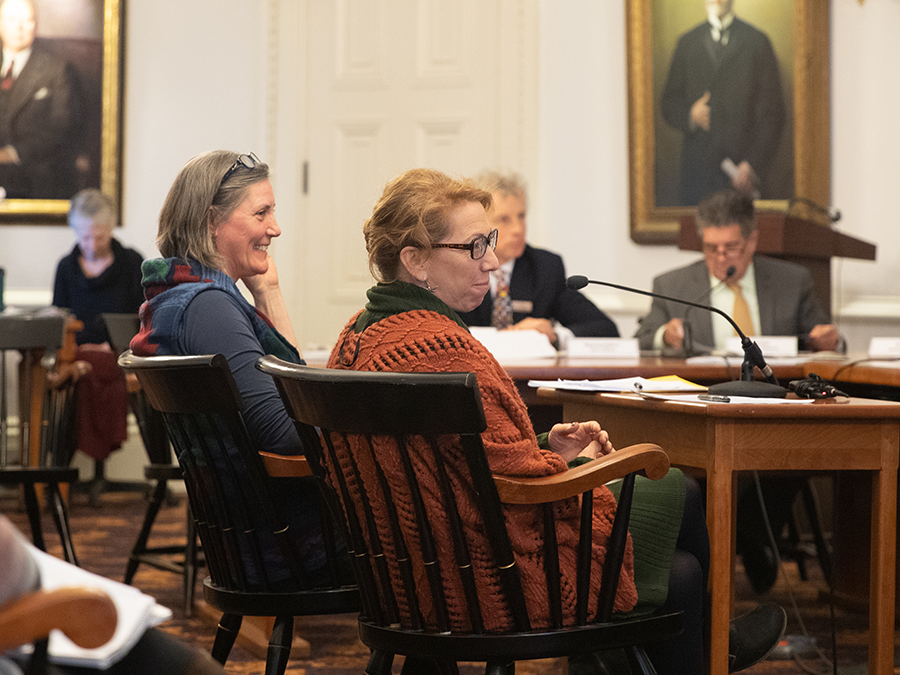
Mary Zigman, Parent-Child Center of Rutland County Executive Director
The Farm to School grants have been critical in allowing us to [address food insecurity] in our child education program. [We’re] weaving the importance of food security and nutrition throughout all of our programs, especially our Early Childhood Education Center and the parents; which is something we don't talk about when we think about the Farm to School. It's Farm to School to Home. We believe that a whole family approach in our child center will incur long-term change.
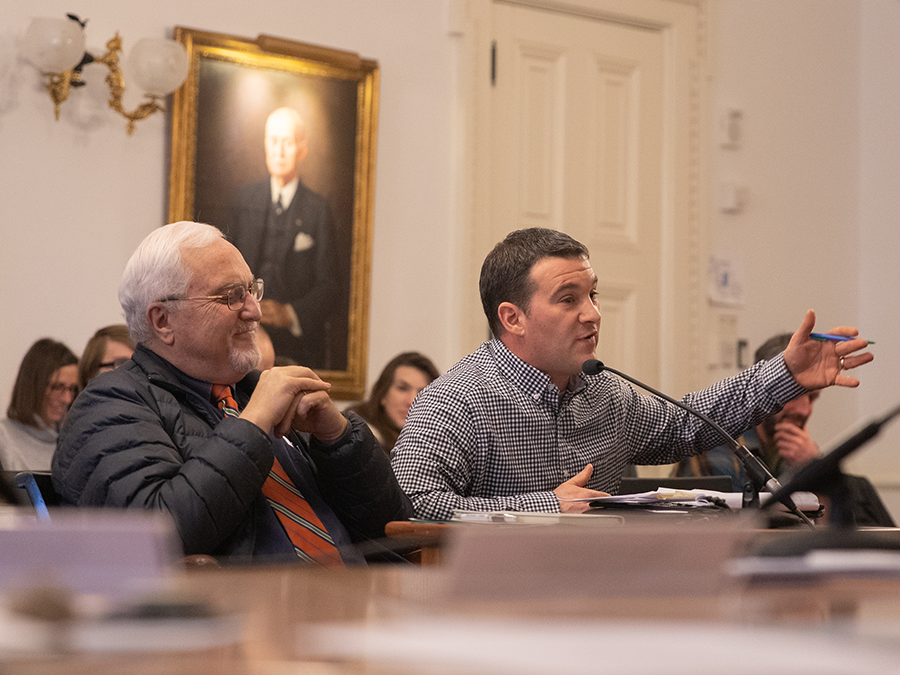
David Baker, Windsor Southeast Supervisory Union Superintendent
Our breakfast program and Breakfast after the Bell program have grown tremendously. But more importantly, that cafeteria or dining hall, as Craig likes to say, as the largest classroom in the building, has actually spread the word throughout the [district]. So much so, that our newly merged district, Mount Ascutney, with Windsor and West Windsor, are going to go self-operational next year. We're going to integrate that whole notion of local product, local purchasing, high levels of nutrition, and education to provide good, healthy meals for all of our kids throughout the entire supervisory union. None of that would have happened without the technical assistance and coaching and financial incentives from the Vermont Department of Ag and all of these agencies that we’re here today to support.
Craig Locarno, Windsor Southeast Supervisory Union Chef and Food Service Director
[We’ve created] a program that's educational; we can reach out to community farmers and producers, and they’re a huge part of our school food program. This local purchasing incentive bill is essential for successful food programs and educating the future generation about how to eat properly, support local farmers, understand the importance of eating locally.
Jodie Stewart-Ruck, Shrewsbury Mountain School Principal
Students are truly excited when math, science and global citizenship come alive as they dig in the dirt or mix herbs together.
As we work to help students develop into thoughtful citizens, we believe it is important to help them understand where they live. Farm to school education helps us to form and maintain stronger connections within our community. These connections are especially integral to historically-marginalized students, as school-based interactions may provide important contacts and mentors and may expose students to new ideas and passions.
Vermont Farm to School & Early Childhood and Universal School Meals in the News:
- Carolyn Partridge: Notes from Montpelier – Benefits of Farm to School Program extend well beyond school walls | Brattleboro Reformer
- Vermont looks to become first state to provide universal meals to public school students | CNN.com
- Lawmakers pitch first-in-the-nation plan for free school meals | VTDigger
- Bill Proposes Universal School Lunches in Vermont | U.S. News & World Report
- More states expanding students' access to free school meals | Education Dive
- No more lunch money? Proposal would make school meals universal in Vermont | WPTZ